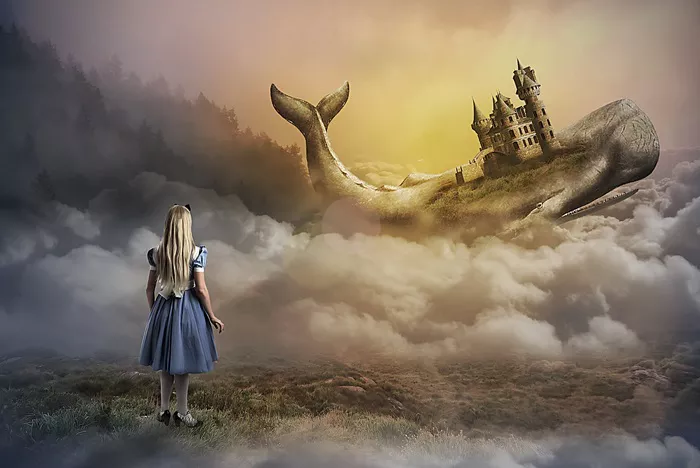Fantasy fiction is a literary genre that transports readers to imaginative worlds filled with magic, mythical creatures, and extraordinary adventures. It allows us to explore realms beyond our own, where the laws of reality are bent or entirely rewritten. This genre has captivated audiences for centuries, offering both escapism and profound insights into human nature.
Origins and Definition
Fantasy fiction is a narrative genre that relies on elements that could not occur in the real world. These stories often feature magic, witchcraft, and supernatural beings, set in imaginary worlds or undiscovered dimensions of our own. Notable examples include William Shakespeare’s “A Midsummer Night’s Dream” and J.R.R. Tolkien’s “The Lord of the Rings.”
Key Characteristics
Fantasy fiction is distinguished by several defining features:
Magic and Supernatural Elements: Central to fantasy are magical powers, enchanted objects, and supernatural beings like wizards, witches, and mythical creatures.
Imaginary Worlds: These stories unfold in settings that differ significantly from our own, such as alternate dimensions, parallel universes, or entirely fictional realms.
Heroic Quests: Many fantasy narratives revolve around heroes undertaking significant journeys or missions, often to save their world or achieve a noble goal.
Good vs. Evil: A prevalent theme in fantasy is the battle between opposing forces, highlighting moral dilemmas and the complexities of human nature.
Subgenres of Fantasy Fiction
Fantasy fiction encompasses a variety of subgenres, each offering unique storytelling styles and themes:
High Fantasy
Also known as epic fantasy, this subgenre is set in entirely fictional worlds with complex histories and cultures. J.R.R. Tolkien’s “The Lord of the Rings” is a quintessential example, presenting a richly detailed universe where the struggle between good and evil unfolds on a grand scale.
Urban Fantasy
Urban fantasy integrates magical elements into contemporary, real-world settings. This subgenre often portrays hidden magical communities coexisting with the mundane world. Notable works include Neil Gaiman’s “Neverwhere” and Jim Butcher’s “The Dresden Files,” where protagonists navigate supernatural occurrences within urban landscapes.
Dark Fantasy
Combining elements of fantasy and horror, dark fantasy delves into the more sinister aspects of magic and the supernatural. George R.R. Martin’s “A Song of Ice and Fire” series exemplifies this subgenre, presenting a world where magic is both wondrous and terrifying, and moral ambiguity reigns.
Historical Fantasy
This subgenre blends historical events with fantastical elements, reimagining the past with magic and mythical creatures. Susanna Clarke’s “Jonathan Strange & Mr Norrell” intertwines the Napoleonic Wars with a world where magic is real, exploring the impact of sorcery on historical events.
Sword and Sorcery
Focusing on action-packed adventures and heroic characters, sword and sorcery tales often feature warriors and wizards battling formidable foes. Robert E. Howard’s “Conan the Barbarian” stories are classic examples, combining martial prowess with magical elements in a gritty, sword-and-sorcery setting.
Notable Works in Fantasy Fiction
Fantasy fiction has given rise to numerous influential works that have shaped the genre and captivated readers worldwide. Here are some of the most notable:
1. “The Lord of the Rings” by J.R.R. Tolkien
This epic trilogy follows Frodo Baggins on his quest to destroy the One Ring and thwart the dark lord Sauron. Tolkien’s creation of Middle-earth set a high standard for world-building in fantasy literature.
2. “A Song of Ice and Fire” Series by George R.R. Martin
Beginning with “A Game of Thrones,” this series combines political intrigue with supernatural elements like dragons and ice zombies, offering a complex and mature take on fantasy.
3. “Harry Potter” Series by J.K. Rowling
Following the young wizard Harry Potter as he attends Hogwarts School of Witchcraft and Wizardry, this seven-book series explores themes of friendship, bravery, and the battle against dark forces.
4. “The Hobbit” by J.R.R. Tolkien
Serving as a prelude to “The Lord of the Rings,” this novel tells the story of Bilbo Baggins’ unexpected adventure to help a group of dwarves reclaim their homeland from the dragon Smaug.
5. “The Chronicles of Narnia” by C.S. Lewis
This series of seven books, starting with “The Lion, the Witch and the Wardrobe,” introduces readers to the magical land of Narnia, where children become heroes in epic battles between good and evil.
Conclusion
Fantasy fiction offers readers an escape from the mundane, providing immersive experiences in worlds limited only by imagination. Beyond escapism, these stories often explore complex themes such as morality, identity, and the human condition, prompting readers to reflect on their own world. The genre’s ability to blend adventure, magic, and profound storytelling ensures its enduring popularity across cultures and generations.

